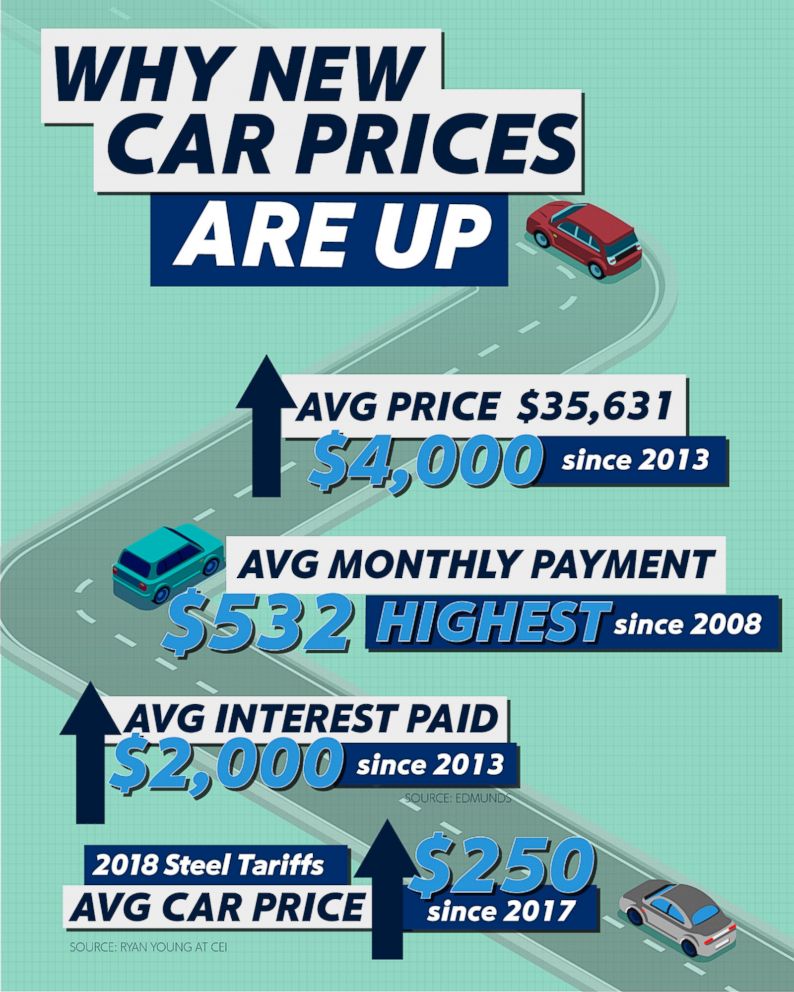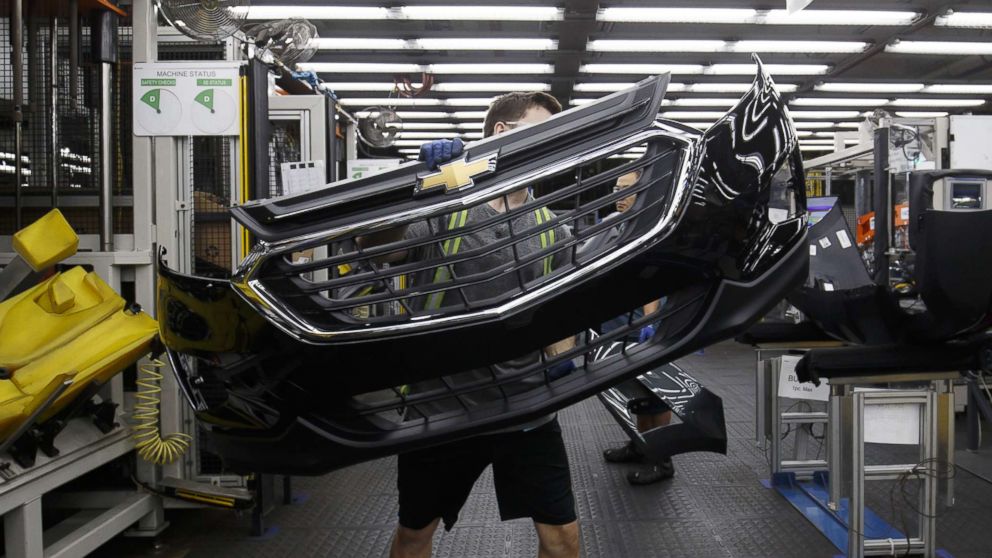The Trump Economy: Why new-car prices are approaching record highs
Ahead of the midterm elections, ABC News is highlighting key issues that affect Americans and how the Trump administration's policies are making a difference in their lives. This part of the series focuses on why car prices are on pace to end the year at an all-time high.

New-Car Prices: By the numbers
From January to September, U.S. new-car prices averaged the highest for that nine-month period since 2008 -- or, actually, ever.
Car prices are a great vehicle for understanding issues underpinning the current economy. So what's behind the climb in prices for new autos?
It's partly the effect of tariffs on raw materials -- a Trump policy. It's partly due to rising interest rates since 2015 -- not a Trump policy, as he's consistently attacked the Federal Reserve for raising rates. On the back of these rate hikes, there's less "cheap money" available, and loan terms are moving in a direction less favorable to borrowers, extending to 72 months for some.
We've gathered some numbers to explain why it costs more, on average, to buy a new car than ever before.
• $35,631: The average price for new vehicles hit a record high in 2018, up $4,000 from five years ago. (Source: Edmunds)
• $532: The average monthly loan payments in 2018, the highest in a decade. (Source: Edmunds)
• 7 percent: The availability of 0 percent loans, reaching their lowest level since the financial crisis in 2008. (Source: Edmunds)
• $5,286: The average total interest paid on new car loans hit a record high in 2018, more than $2,000 higher than in 2013. (Source: Edmunds)
• $250: The average price increase of a new car due to higher steel prices. The Trump administration slapped a 25 percent tariff on foreign steel, and domestic producers raised prices to match. (Source: Ryan Young, an economist at the Competitive Enterprise Institute)




